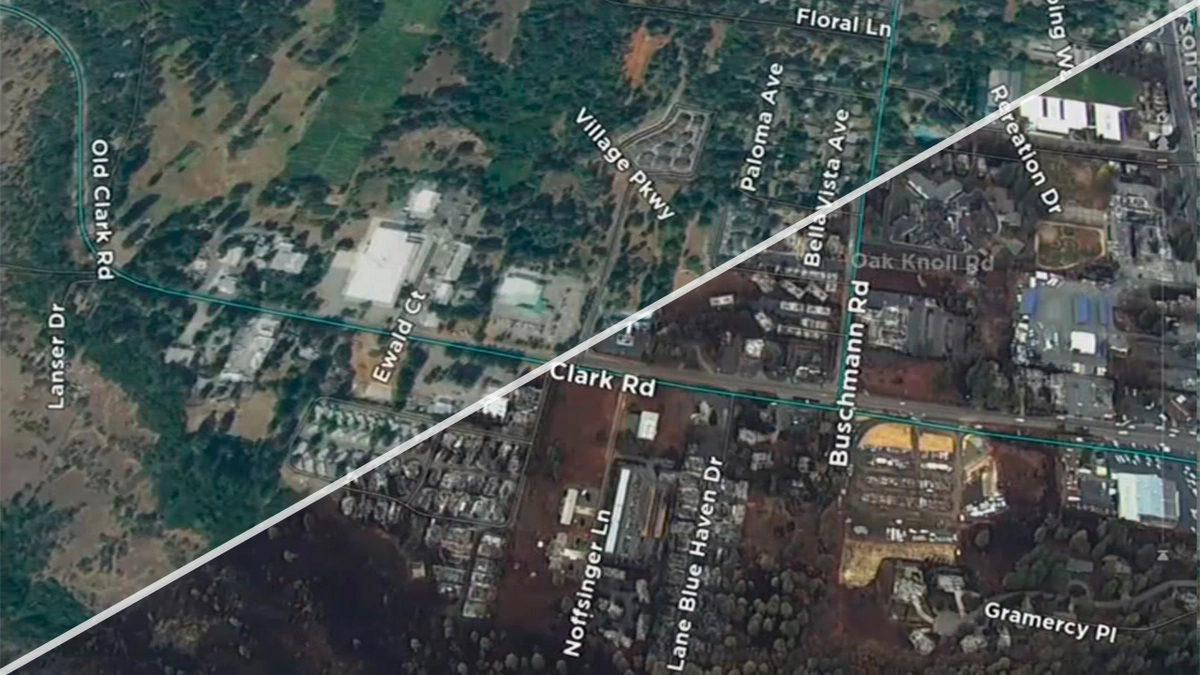The Paradise Fire . Just the name evokes images of devastation, doesn’t it? But let’s be honest, it’s been a few years. You might be thinking, “Why should I care about a fire that happened back in 2018?” That’s a fair question. Here’s the thing: the repercussions of the Paradise Fire are still being felt today, and they offer crucial lessons about climate change, community resilience, and the very real threats facing towns across America.
The Anatomy of a Disaster | What Really Happened in Paradise?

We all saw the headlines. But let’s dig deeper. The Camp Fire , which decimated Paradise, wasn’t just bad luck. A confluence of factors created a perfect storm. Dry conditions, fueled by a prolonged drought, met with strong winds and, tragically, aging power lines. Pacific Gas and Electric (PG&E) equipment was ultimately deemed responsible, a stark reminder of the infrastructure risks many communities face. As per the official report, downed power lines ignited dry vegetation, quickly spreading into an inferno.
And the speed? Unfathomable. Paradise went from a normal, quiet town to a raging inferno in a matter of hours. Residents had little time to evacuate, leading to chaos and, tragically, loss of life. What fascinates me is how quickly a seemingly ordinary day could transform into utter catastrophe.
Beyond the Headlines | The Human Cost of the Paradise Fire
It’s easy to get lost in statistics – the acres burned, the homes destroyed. But behind those numbers are real people, real lives irrevocably altered. The loss of life was, of course, the most devastating aspect. But the fire also displaced tens of thousands of residents, many of whom lost everything they owned. Imagine suddenly having no home, no job, no community. That’s the reality the residents of Paradise faced, and continue to grapple with. You can read more about community resilience efforts here .
Beyond the material losses, there’s the emotional trauma. PTSD, anxiety, and depression are rampant among survivors. Rebuilding a life after such devastation is an incredibly difficult and long-term process. The psychological impact of the fire is something we often overlook, but it’s a critical part of the story.
The Lessons Learned | How the Paradise Fire Changed Everything
So, what did we learn from the Paradise Fire? A lot. Firstly, it highlighted the increasing risk of wildfires in a changing climate. As temperatures rise and droughts become more frequent, communities need to be prepared. This means investing in fire prevention, improving evacuation plans, and hardening infrastructure. Let me rephrase that for clarity: it’s not just about fighting fires; it’s about preventing them in the first place. I initially thought this was straightforward, but then I realized how complex it is to change old infrastructure.
Secondly, the fire exposed the vulnerabilities of our infrastructure. Aging power lines, inadequate emergency communication systems – these are problems that exist in many communities across the country. Paradise was a wake-up call, urging us to address these issues before another tragedy strikes. Thirdly, the fire underscored the importance of community resilience. In the face of unimaginable loss, the residents of Paradise came together to support each other and rebuild their town. Their spirit and determination are truly inspiring.
Rebuilding Paradise | A Story of Hope and Resilience
Paradise hasn’t disappeared. While the rebuilding process is slow and arduous, the community is determined to come back stronger than before. New homes are being built, businesses are reopening, and residents are returning. The challenges are immense, but so is the spirit of the people of Paradise. What fascinates me is seeing this process unfold in real-time.
But, the recovery process is also raising important questions about sustainable development. How can Paradise rebuild in a way that is more fire-resistant and environmentally friendly? How can it attract new residents and businesses while honoring its past? These are complex issues with no easy answers. But as mentioned earlier, it’s the community bonds that matter the most. Here’s more on community building in this piece.
Looking Ahead | Protecting Our Communities from Wildfires
The Paradise Fire was a tragedy, but it also serves as a warning. We need to take action now to protect our communities from the growing threat of wildfires. This means investing in fire prevention, improving emergency response, and addressing the root causes of climate change. A common mistake I see people make is thinking that wildfires are only a problem in California. The truth is, communities across the country are at risk. Let’s be honest, we can’t afford to ignore this issue any longer.
Understanding California wildfires is understanding risk. Understanding risk is understanding preparation.
FAQ | Your Questions About the Paradise Fire Answered
What caused the Paradise Fire?
The Paradise Fire was caused by downed power lines owned by PG&E. Dry conditions and strong winds contributed to the rapid spread of the fire.
How many people died in the Paradise Fire?
At least 85 people lost their lives in the Paradise Fire, making it the deadliest wildfire in California history.
Is Paradise, California, being rebuilt?
Yes, Paradise is being rebuilt. The rebuilding process is ongoing, with new homes and businesses being constructed.
What can I do to help prevent wildfires?
You can help prevent wildfires by being careful with fire, maintaining your property, and supporting policies that address climate change.
What’s the status of PG&E after the fire?
PG&E filed for bankruptcy after the fire and has since emerged with a plan to compensate victims and improve safety measures. As per Wikipedia , this is still an ongoing discussion.
The Paradise Fire wasn’t just a fire; it was a crucible. It tested the strength of a community, exposed the weaknesses of our infrastructure, and underscored the urgent need to address climate change. And it showed us the incredible power of hope and resilience in the face of unimaginable loss. That’s why it still matters. That’s why we must never forget.




